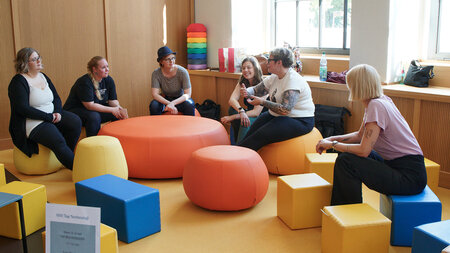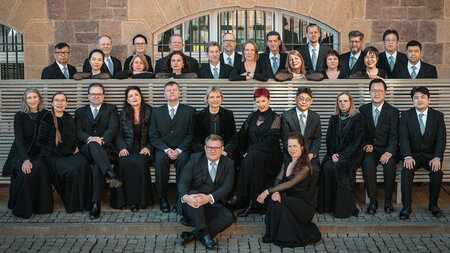Eintrag in der Universitätsbibliographie der TU Chemnitz
Lange, Anne*
Hüßig, Stefan (Prof. Dr.) ; Arnold, Marlen Gabriele (Prof. Dr.)
Combining Frugal Innovation, Inclusive Business, and Scrum for Addressing Low-income Contexts with Sustainability Considerations
Kurzfassung in englisch
Sustainability and the penetration of new markets beyond developed industries are two topics that are gaining increasing attention both in research and in business practice. As Western industries are becoming saturated, companies are looking for further business alternatives and are focusing on North-South opportunities, among others. Therefore, bottom-of-the-pyramid markets are often mentioned as promising mass markets. However, market access remains a challenge, as bottom-of-the-pyramid contexts are characterized by low incomes, resource constraints, and infrastructural barriers. In addition, sustainable practices are a challenge. Since the introduction of the Sustainable Development Goals by the United Nations, which apply to all countries, companies are required to address aspects of sustainability in their business practices. However, they have to cope with conflicting dimensions inherent to sustainability such as improving economic and social aspects, which are usually accompanied by higher resource demands and environmental degradation. Previous literature started to address these issues by focusing on innovative approaches such as frugal innovation, social innovation, or resource-constrained innovation. In the last decade, research on frugal innovations has particularly focused on how to address the challenges of low-income and resource-constrained contexts, often with aspects of sustainability in mind. However, to address these low-income contexts, having a suitable innovation is not enough; businesses must actually reach the target group, such as by overcoming accessibility issues in rural areas. Initial research has examined the value chains of frugal innovations and ways to engage the consumer, which also leads to social improvements. Building on this research, this dissertation combines four themes – frugal innovation, sustainability, inclusive business, and Scrum – to illustrate how innovations can address the needs of target groups in bottom-of-the-pyramid contexts and how these innovations can be implemented by engaging target customers. The first paper illustrates the links between frugal innovation and sustainability based on a new sustainability evaluation framework. All cases considered contribute to sustainability, with social improvements being most notable. New employment and income opportunities are key social improvements. They reflect inclusive business approaches, which are the focus of the second paper. The case examples of the second paper show how frugal innovation can be implemented in accordance with inclusive business, which leads to customer involvement and thus mutually supports frugal innovation. The Inclusive Business Link Model for Frugal Innovation was built to show connections of frugal innovation and inclusive business and to provide application possibilities. A key finding was that for the cases considered a high level of customer integration can be achieved through frugal innovations with modular designs and is supported by knowledge transfer and partnerships. To address knowledge transfer and partnerships in particular, the last paper applies Scrum as an agile approach at the execution level for inclusive business. In developing the conceptual model Inclusive Business Scrum Approach, inclusive business is considered as the 'what' and Scrum as the 'how' in engaging low-income consumers. With regard to all three papers and the four included topics, this dissertation achieves several outcomes and contributes to a broader view of how low-income consumers can be addressed. First, each paper illustrates benefits of combining the concepts that could be valuable when addressing the bottom-of-the-pyramid context. Thereby, the papers build on each other and include previous results. Second, aspects of social sustainability are addressed mainly by combining frugal innovation and inclusive business. Third, each paper develops a model or framework intending to support practical applicability. Finally, an outline is provided for how combining frugal innovation, inclusive business, and Scrum positively could impact partnerships, knowledge transfer, and the empowerment of the target group, which could culminate in an approach that addresses challenges experienced when entering the Bottom of the Pyramid that also considers sustainability. The new management options developed begin at a general level and end at an execution level and thus contribute to holistic perspectives on innovations, approaches, and implementation options for organizations intending to address the Bottom of the Pyramid.
| Universität: | Technische Universität Chemnitz | |
| Institut: | Professur BWL - Innovationsforschung und Technologiemanagement | |
| Fakultät: | Fakultät für Wirtschaftswissenschaften | |
| Dokumentart: | Dissertation | |
| Betreuer: | Hüßig, Stefan (Prof. Dr.) | |
| URL/URN: | https://nbn-resolving.org/urn:nbn:de:bsz:ch1-qucosa2-761480 | |
| Quelle: | 2021. - 174 S. | |
| SWD-Schlagwörter: | Nachhaltigkeit , Niedrigeinkommen , Innovation , Sozialinnovation , Entwicklungsländer , Low-income Countries | |
| Freie Schlagwörter (Englisch): | Frugal Innovation , Sustainability , Inclusive Business , Scrum , Agile | |
| DDC-Sachgruppe: | Wirtschaft | |
| Sprache: | deutsch | |
| Tag der mündlichen Prüfung | 21.09.2021 |




